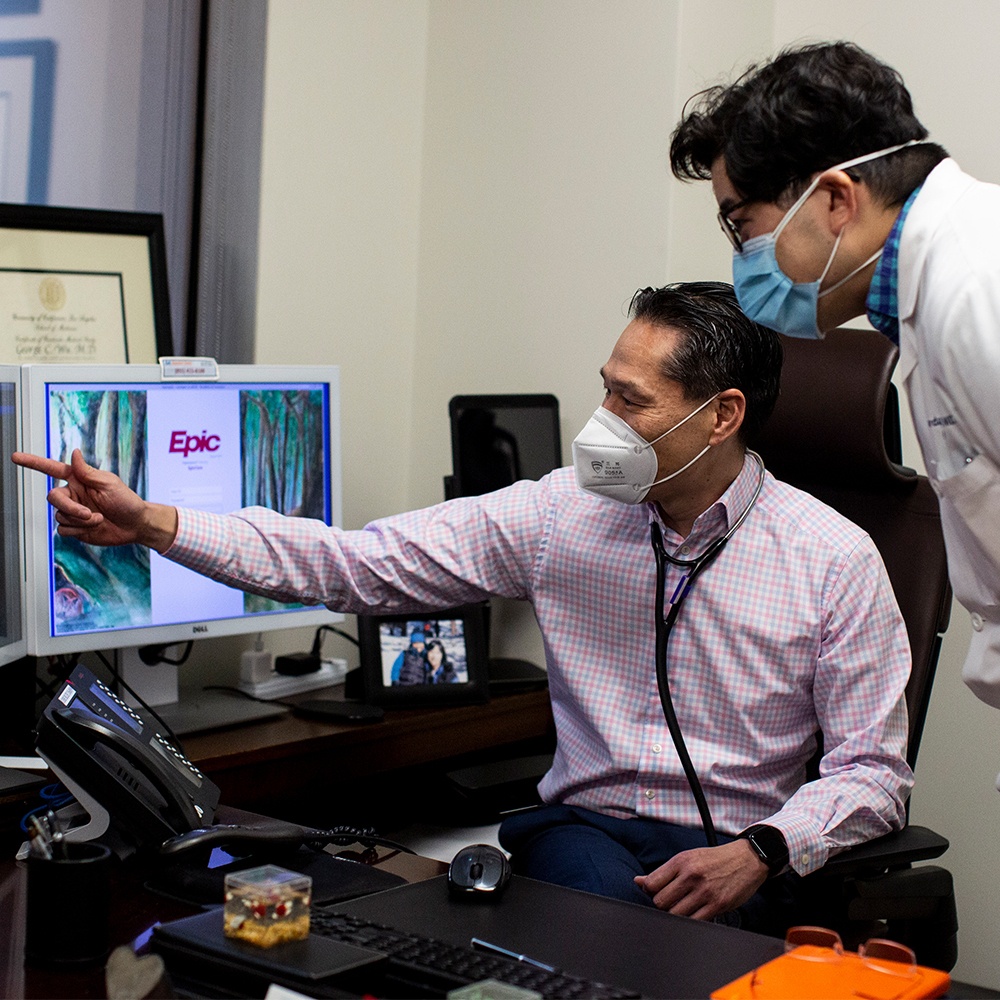Cardiac Implantable Electronic Device Interrogation

Overview
What is Cardiac Implantable Electronic Device Interrogation?
A cardiac implantable electronic device interrogation is a standard practice where your cardiologist can “look into” your pacemaker or implantable cardioverter-defibrillator to ensure it is functioning appropriately. The goal of a device interrogation is to determine clinical effectiveness, confirm device function and evaluate the impact on co-morbid conditions. Your cardiologist may perform the interrogation in the office, but it’s now commonly done remotely and interpreted electronically. However, if your cardiologist is concerned about a device malfunction or an arrhythmic event, the procedure will most likely be done in the office or the hospital.
Besides treating abnormal heartbeats, your cardiac device automatically records and stores information about your heart rhythm and the device function. This data is then sent to your cardiologist for evaluation and possible adjustments to the device as well as other treatments such as medications. The data retrieved may include:
- Heart rate, atrial and ventricular arrhythmias.
- Battery life and lead function of the device.
- Device delivered treatments.
- Your daily physical activity.
- Some device may also collect data about fluid buildup in your lungs
Your cardiologist may access information from your cardiac device by placing a device reader directly over your device during a regular office visit; this is called a “device interrogation”. The same data may also be accessed via electronic transmission from a remote monitor set up in your home.
Why
Why a Cardiac Implantable Electronic Device Interrogation?
It is standard practice to be monitored on a regularly scheduled basis when you have a cardiac implantable electronic device, and remote monitoring is becoming the norm. There are several benefits with remote monitoring, including:
Early Detection
Problems with your device or with abnormal heart rhythms can be detected earlier so your cardiologist can respond faster.
Less Doctor Visits
You don’t have to go to your cardiologist’s office as frequently.
May Reduce ICD Occurrences
It can reduce the occurrence of inappropriate ICD shocks or the need for hospitalization.
May Improve Disease Management
It may improve disease management if you have heart failure.
Risks
Cardiac Implantable Electronic Device Interrogation Potential Risks and Complications
A cardiac implantable electronic device interrogation is a non-invasive and painless process.
Prep
Preparing for a Cardiac Implantable Electronic Device Interrogation
If your interrogation procedure is done in the office or hospital, the procedure will be fully explained to you, which generally takes 5 to 10 minutes. If you receive a remote monitor, you will be shown how to pair it with your cardiac device to allow for secure communications between the devices using Bluetooth technology. If your remote monitor is mailed to you, follow the instructions or call your cardiologist’s office for assistance.

What to Expect
What to Expect During a Cardia Implantable Electronic Device Interrogation
Your cardiologist will schedule dates for routine transmission from your remote monitor, usually every 3 to 6 months. Your remote will automatically collect and send the data on your device, without interfering in your daily activities. If you have concerns or you’re experiencing cardiac symptoms, contact your cardiologist’s office for instructions. You may be asked to send a remote transmission for immediate attention. Your remote monitor is programmed to automatically send a transmission to your cardiologist’s office if it’s not working properly or if you’re experiencing atrial fibrillation. You may also have a manual system that requires you to press a button on your remote monitor, or place a device reader over your device, to transmit the data. After the information is collected from your cardiac device, the data is securely transmitted to your cardiologist’s office, using a wireless cellular network, telephone landline, or a wired Internet connection.

Specialists